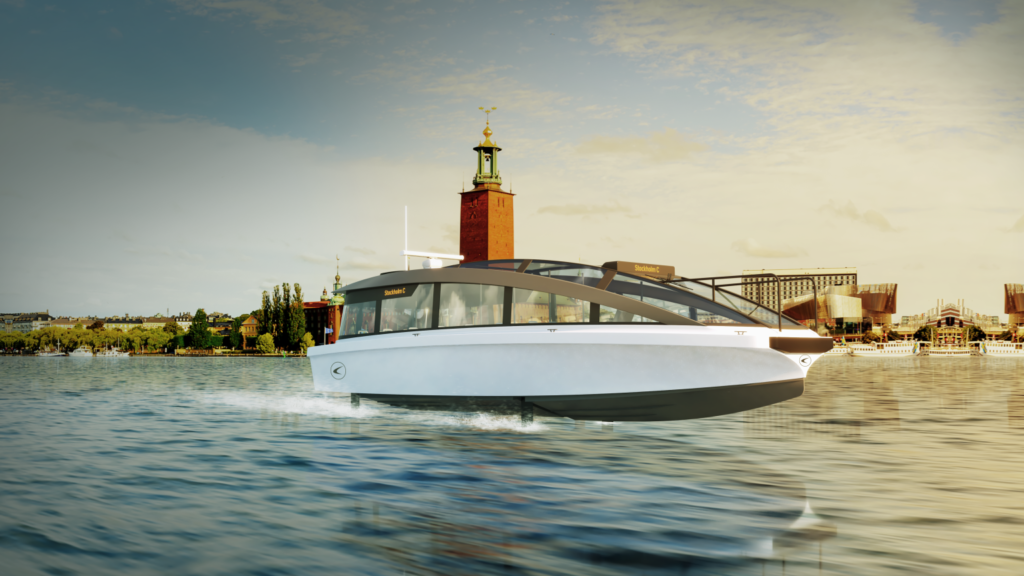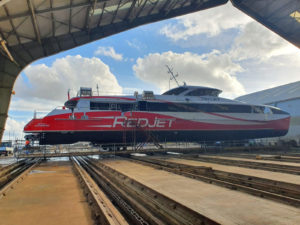World’s fastest all-electric passenger ship to launch in Stockholm

The new foiling Candela P-30, said to be the world’s fastest all-electric passenger ship, will take to Stockholm’s waterways in 2022, shuttling passengers to and from the archipelago above the water, on foils, without noise and CO2 emissions.
As early as next year, Candela’s new 30-passenger ferry P-30 will commence operations, carrying passengers at speeds of up to 30 knots. The intention is to eventually replace the city’s ageing fleet of 60 diesel boats currently serving commuters and visitors to and from the 30 000-island archipelago, which stretches from the city centre.
Funded jointly by Stockholm technology boat builder Candela and the Swedish transport authority, the P-30 ‘flies’ on computer-controlled hydrofoils which reduce energy consumption by 80 percent which, the company says, is the key to its long all-electric range at high speeds. Candela also states that the higher service speeds will allow the new P-30 ferry to shuttle more passengers farther and faster than any other electric ship, and will be able to service even the longest routes because it can travel for more than three hours at 20 knot cruise speeds before recharging.
The P-30 can also operate in urban waterways at higher speeds than traditional passenger boats because it creates virtually no wake that would otherwise damage nearby vessels or property. “Today, most of our waterways are unused for mass transit, even though most highways are congested during rush-hour traffic. Opening up urban waterways for high-speed electric transport can revolutionize commuting in cities such as San Francisco, Seoul or Amsterdam – at a very low cost,” says Gustav Hasselskog, the founder and CEO of Candela. “There’s no need to build new infrastructure.”
Artificially stabilising the ride, the P-30 ferry’s flight controller, an onboard computer, will analyse the boat’s pitch and roll a hundred times a second and automatically adjusts the foils to keep it level above the waves.
The P-30’s hydrofoil tech provides other benefits over conventional ships too, says Candela. A recent report by the municipality of Stockholm estimates the overall cost of operating the Candela P-30 will be half the cost of conventional diesel ferries and the P-30 consumes about 3 kWh per nautical mile, which is one tenth of a conventional ship and comparable to the energy consumption of a modern electric-hybrid bus.
Candela’s director of public transportation Erik Eklund says: “Our goal is to prove that our electric hydrofoil ferries are much cheaper, more comfortable and a lot more versatile than conventional vessels. It’s not just an alternative to other ships, but a whole new take on public transportation.”










